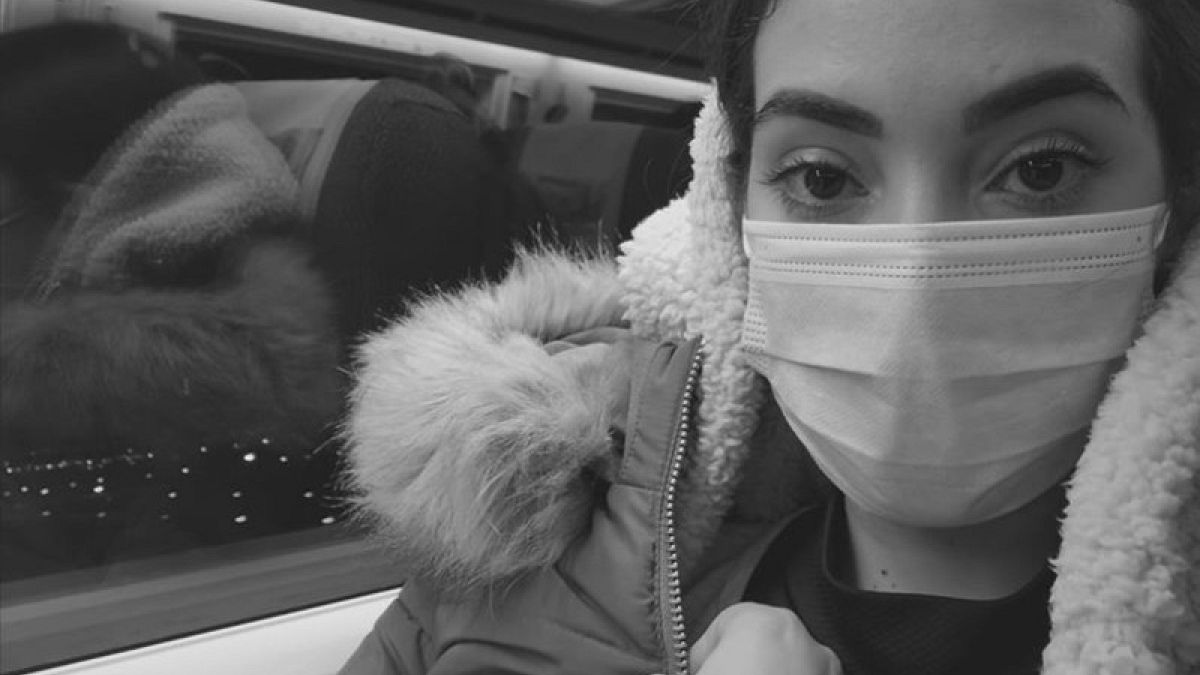Ilham Mounssif is one of the 60 million people currently living on lockdown in China. This is her story.
“I’m being locked in an apartment and I’m staying away from anyone. I have no human contact.”
These are the words of Ilham Mounssif, a Moroccan-born and Italian-bred cultural ambassador who lives in the Chinese city of Quzhou, in Zhejiang province - the second most coronavirus-stricken area of the mainland.
The 25-year-old, who teaches European languages and civilisation at the Huagang Middle School of Longyou County in Quzhou, is one of the 60 million people currently living on lockdown in China.
Locked inside the campus
Mounssif says that while Hangzhou - the capital of Zhejiang province - has been put on official lockdown by Chinese authorities with the military patrolling the streets, her city hasn’t.
“Despite (the fact that) we are not on official lockdown, we practically are. We cannot leave our apartments, we are not allowed to go around the city or even the city centre”, she explains.
The woman says she is locked within the premises of her school’s campus and points out that there is no one else on site besides herself and some receptionists.
“I’m not allowed to leave because of the rules imposed on our school: everyone who works here is not allowed to exit Longyou County. Who does risks of being dismissed. The rules are very strict.”
View excerpts of the interview with Ilham Mounssif in the video player above.
Everyday life
“Life is very boring, as you may picture. I get up in the morning, I read the news and I try to keep updating my friends and followers on Instagram.”
Through posts and stories on her Instagram account, Moiunssif tells her audience how it is to live at the moment in China, and she says many people have thanked her for the amount of information she provides on a daily basis.
“It's kind of a way to keep (myself) busy, time runs faster”, she adds.
During the day the teacher spends her time reading, watching movies and jogging on the campus’ running tracks.
“Since there is no one, there is no risk for me when I’m going out. So I just go and run, do a little bit of sport, which is really good and super healthy.”
As for eating and grocery shopping, the woman reveals that she hasn’t been to a supermarket for two weeks. So how does she get her supplies?
“Whenever I need something, I just ask my colleagues off-campus and they provide me with food. They send everything I need to my home, everything is delivered to my apartment so that I don’t have to go to supermarkets.”
The emotional impact of living under lockdown
Mounssif says this new way of living everyday life is not easy. She spends most of her time in her apartment, away from anyone she knows.
“I have no human contact. I don’t have the opportunity to go out, go for a walk and meet friends and colleagues. It’s pretty, pretty hard. I really miss the very basic things of life, like chatting with people, connecting with anyone.”
Although the situation seems rather dire from a social perspective, one thing helps the cultural ambassador to feel less isolated and lonely: the internet.
“I can’t imagine without WiFi here what it would have been, probably much worse. Still, it’s not the same thing. I really miss going to a bar, talking to people - the very normal things of life we can’t do them right now.”
Communication and information
The 25-year-old says there are different ways through which details concerning the lockdown and updates of the coronavirus outbreak are spread.
Communication is mainly carried out through the messaging and social media app WeChat. Authorities use the platform to reach out to citizens, posting official warnings in both Chinese and English languages for locals and foreigners.
Similarly, common people use the app to exchange information. In Mounssif’s case, other teachers keep her posted through her school’s group chat.
Another form of communication is the one that goes through mobile phone providers.
“Our provider, China Mobile, sends us messages every day through SMS texts. This way we are constantly aware of the number of infected people, the rules that we have to follow, and so on. Communication is very straightforward and direct.”
What’s next?
Mounssif believes she will have to stay put in her apartment for a long while. She says she does not mind it as staying at home makes her feel safer than being outside.
“We need to stay indoors because the emergency is still high and we expect a peak of coronavirus cases by 10 February.”
As the woman points out, the following weeks will be crucial to grasp the full impact of the outbreak and understand how the situation may develop further. It will also mark a full month of living under lockdown for the cultural ambassador.
